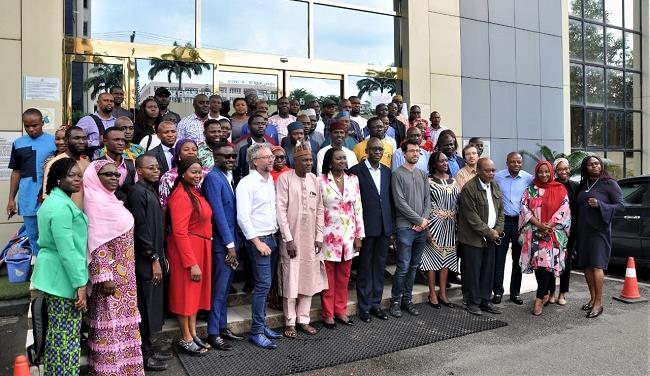The Department of Climate Change (DCC) of the Federal Ministry of Environment has embarked on a capacity-building exercise on the use of the National Green House Gas (GHG) Inventory Compilation and Resource Inventory Safety and Quality Tool as part of efforts to help Nigeria achieve its emissions reduction plan.

As a Party to the Paris Agreement on climate change, Nigeria committed to reducing its GHG emissions conditionally by 20% and unconditionally by 47% by 2030 in line with her Nationally Determined Contributions (NDCs) pledge.
The European Union (EU) through the provision of technical assistance for the implementation of the Nigerian Climate Change Response Programme (NCCRP) is supporting the country to establish the Monitoring, Reporting, and Verification (MRV) framework and how to sustainably implement the system in the waste and energy sectors to achieve the aforementioned target.
This is going to require the development of a Data Management and Quality Assurance and Quality Control tool, in accordance with the NCCRP methodology for energy and waste.
As a stand-alone system that includes “excel” programme calculation files and an “access” tool for compilation, the RISQ device also has the ability to document, analyse, verify and report GHG data and information.
Emissions from human activities strengthen the greenhouse effect and cause an increase in global temperature, so this instrument is intended to aid countries in meeting their transparency requirements regarding the GHG inventory under the Paris Agreement.
The burning of fossil fuels like coal, oil, and natural gas for electricity, heat, and transportation has huge inimical effects on human and environmental health.
“They contribute to respiratory diseases from smog and air pollution, extreme weather, food supply disruptions, and increase wildlife,” says Dr. Iniobong Abiola-Awe, the director at DCC.
Dr. Abiola-Awe, who made the statement while addressing participants at the ongoing workshop organised by her department in Abuja, revealed that the goal of the training is to build the technical capacity of stakeholders on the use of the RISQ tool in Nigeria, as well as the application of relevant Intergovernmental Panel on Climate Change (IPCC) methodologies.
Specifically, she added that the objective of the event is to enhance actors’ knowledge in terms of sectoral methodologies on energy and waste, presentation of the RISQ tool and its use to check the quality of the data and report the result according to the Common Reporting Tables format from the Enhanced Transparency Framework (ETF).
“As you engage in this capacity building, I urge you all to seek efficiency and acquire the necessary knowledge to provide the right confidence in our Data Management, Quality Control, and Quality Assurance,” the DCC director stated.
She appreciated all the stakeholders for their usual cooperation especially her team for successfully coordinating the event.
“My profound gratitude goes to the European Union for this laudable initiative and support towards the achievement of Nigeria’s conditional NDC target,” Dr. Abiola-Awe submitted.
The national greenhouse gas inventory is an accounting of greenhouse gases emitted to or remove from the atmosphere. It is used to establish a baseline for tracking emission trends, developing mitigation and adaptation strategies, policies, and assessing progress. They are also used to monitor progress towards the reduction target.
By Etta Michael Bisong, Abuja
